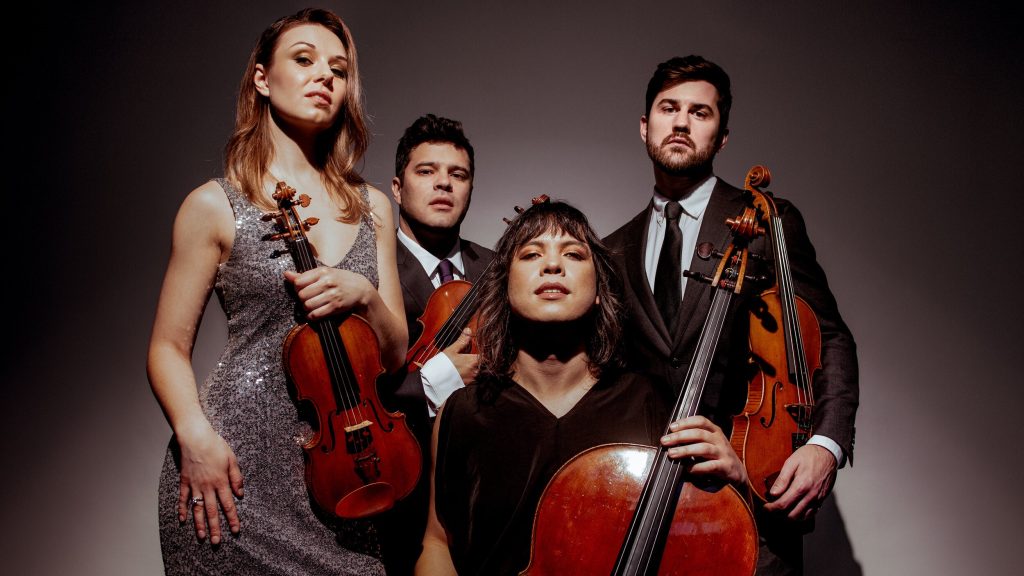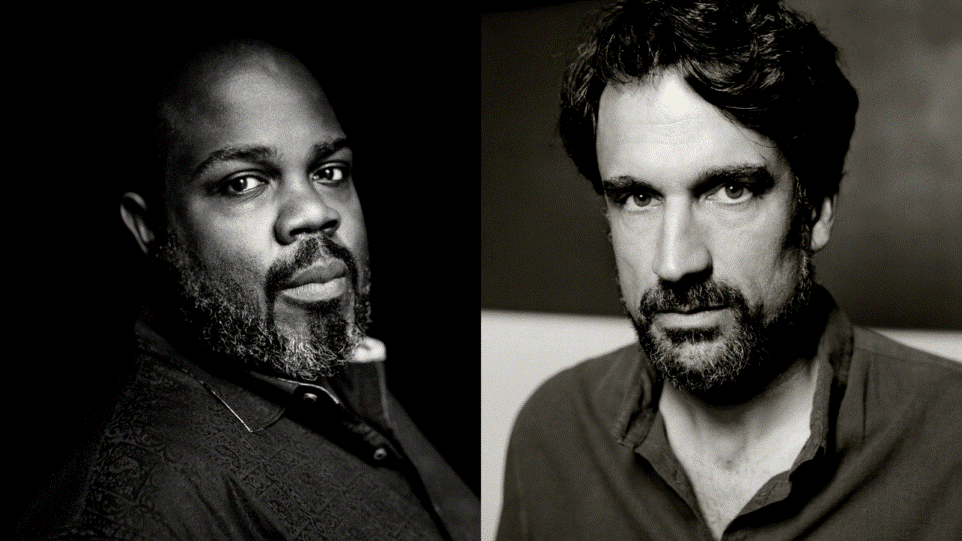
 (4 / 5) Attacca Quartet
(4 / 5) Attacca Quartet  (4 / 5) Reginal Mobley/Baptiste Trotignon
(4 / 5) Reginal Mobley/Baptiste Trotignon
A hefty evening at Wigmore followed after Jan Lisiecki the night prior. It was a more laid back affair, myself being the only critic in as they all appeared to be at the First Night of the Proms. American by heart, the Attacca Quartet added flair and thrills to this evening.
You usally know what to expect with Phillip Glass and here was no different. This String Quartet No. 3, dubbed ‘Mishima’ from 1985 is standard fare. You’ve got to like arpeggios to get Glass, as you hear a considerable amount in each of his pieces. I’m taken with the playing of Attacca, is was almost like a gig as opposed to a concert proper. Sweetness melds with nostalgia in what is the soundtrack to the film from Paul Schrader.
John Adams with his 2nd String Quartet is another big, American sell. Acidic flips in classical forms are transformed with his erratic bouts of energy and a reeling consciousness. Its was fun just watching the quartet, cellist Andrew Yee really gets into things it was if as we were at a rock concert, head banging abound. The four together have a snapping focus, musically very touching. On viola, Nathan Schram is so charming, he introduction to the music is insightful, his overalls and trainers a trendy statement.
We’ve been hearing more from Caroline Shaw at present. The American gentleman sat near me said she is played extensively in Chicago. One can see why, as her music has an easy appeal and is often quite inspiring. Within 3 Essays you get the spirit of the hymn and the fiddle, taking several points of reference as its starting point. She is unafraid to have moments of discord, gently sliding back into tonality, the playing near the bridge of the instruments creates screeching, singing sounds. Shaw will be getting a lot more presence as a welcome addition to programmes either side of the pond. I would like to hear more.
Paul Wiancko is a new name to me, though Yee stated the music us life changing. I’d agree to an extent, more country themes are spread throughout the score. Frantic flustering is heard and seen in his LIFT, stated in the programme as being “a very American piece”. It pretty much is, though any more than the rest of the bill is debateable. Attacca Quartet gave Wigmore the most interesting and liberating concert for some time.

A late night concert shortly followed. An hour of American spirituals was a fine way to end the night, thanks to the efforts of Reginal Mobley & Baptiste Trotignon. Mobley is a countertenor and an impressive one at that, sweet voiced and endlessly vibrant. Heard in Handel and Bach, he is also keen to make part of the larger canon the importance of the spiritual. We feel for him, the weight of these songs under slavery in American history, reain a great resource. Some are recognisable, ‘Nobody knows the trouble I’ve seen’ is one moody example, whilst others exude the most wonderful air. ‘A Great Campmeetin’ has an infectious charm, ‘Save Me Lord’another powerful song that left me moved.
On piano Frenchman Baptiste Trotignon is equally happy in this or jazz, his improvisation also noteworthy for its effortlessness. Other important composers of colour: Florence Price and Harry T Burleight are also here, their contribution to the perseveration of spirituals and the creation of their own songs also standout. The last set featuring ‘Deep River’ ‘I got a robe’ and ‘Bright Sparkles in the Churchyard’ add to the religious fervour. Its amazing how well these songs end, they seem to tuck themselves in, as the medley is wrapping up. It’s always satisfying and this concert shall be well remembered.

